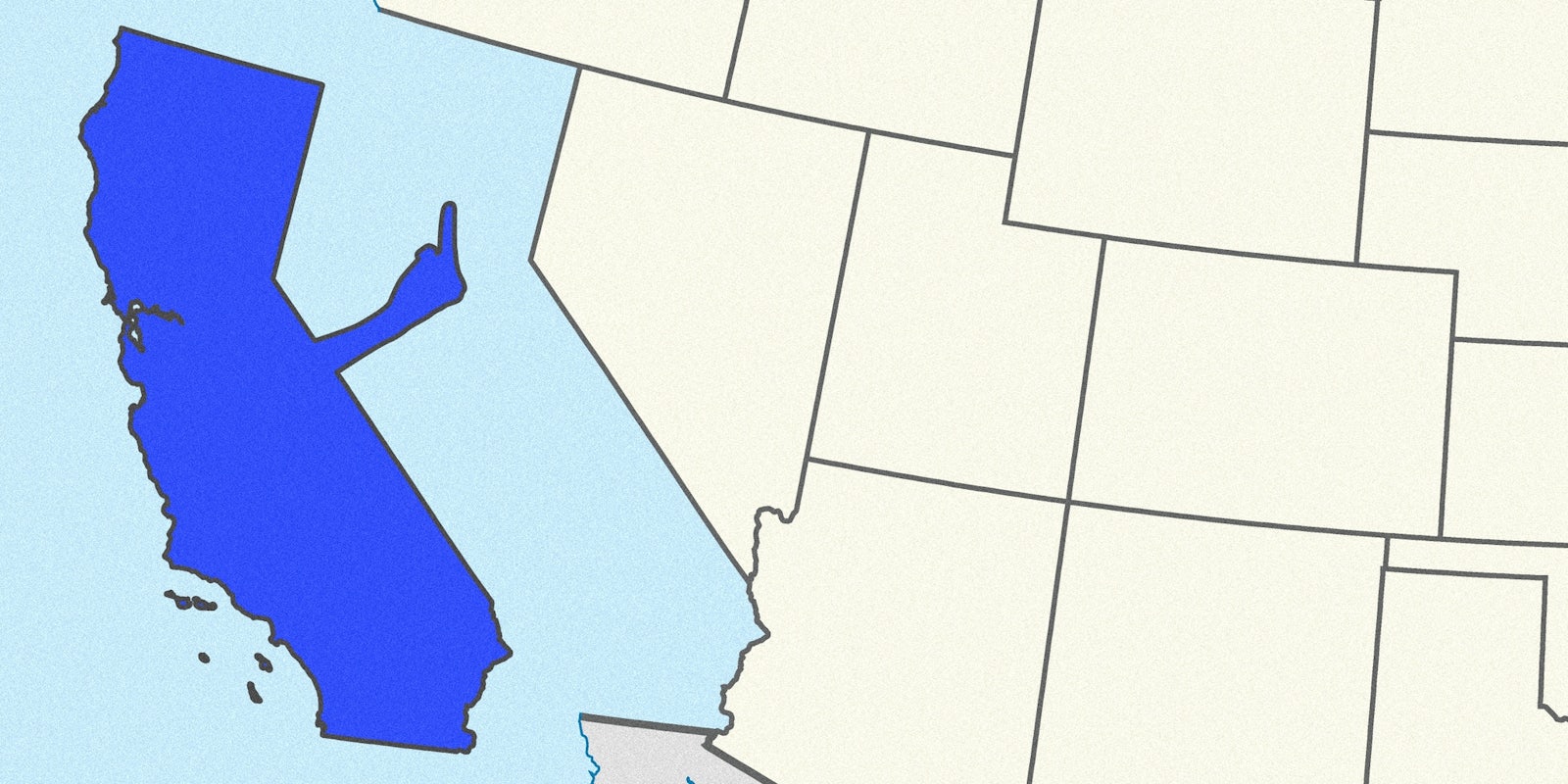An unlikely campaign for California to secede from the United States is just as unlikely since President-elect Donald Trump‘s ascent into the White House.
Known as “Calexit,” the movement has failed before, and its resurrection is still in its very early stages. So, can Calexit succeed? Probably not—but who knows? That doesn’t mean it’s impossible.
How would Calexit work?
Leaders of the Yes California Independence Campaign hope that opposition to Trump’s stance on illegal immigration and the environment from many of the state’s residents and city officials will gather enough signatures to make the state’s secession a ballot measure in 2018. If the Calexit petition gathers enough signatures and the ballot passes, Californians will be looking at a special election for the state’s petition in 2019.
If the measure passed, it would then be up to California to convince the federal government to let it leave, a process that isn’t at all clear in the law. Yes California explains their two options this way:
- A member of the California federal delegation to Washington would propose an Amendment to the U.S. Constitution allowing the State of California to withdraw from the Union. The Amendment would have to be approved by 2/3 of the House of Representatives and 2/3 of the Senate. If the Amendment passed it would be sent to the fifty state legislatures to be considered (to satisfy the “consent of the states” requirement in Texas v. White). It would need to be accepted by at least 38 of the 50 state legislatures to be adopted.
- California could call for a convention of the states (which is currently being organized to tackle other constitutional amendments as we speak) and the Amendment granting California its independence would have to be approved by 2/3 of the delegates to this convention. If it passed, the Amendment would be sent to the fifty state legislatures to be considered and 38 of the 50 states would have to approve the measure in order for it to be adopted.
What’s the argument for Calexit?
Basically, Yes California believes the state would be better off as an independent nation. And it’s big enough to hold its own on the world stage: In 2015, the state had the sixth largest economy in the world—slightly above France and Brazil—with a GDP of more than $2.4 trillion.
“As the sixth-largest economy in the world,” Yes California wrote in a statement, “California is more economically powerful than France and has a population larger than Poland. Point by point, California compares and competes with countries, not just the 49 other states.”
Is there any reason to think Californians support Calexit?
Not much. We were unable to find any scientific polls conducted on the topic since Election Day. The best we found were a couple of online surveys, like this one at the San Diego Union-Tribune, which found 63 percent of some 3,100 respondents said they would vote yes to Calexit. But that’s just some internet click-poll, not a real thing anyone should cite as fact.
There is, however, quite a bit of frustration with the election of Trump, who lost California by 28 points.
California Gov. Jerry Brown warned Trump in a statement that the state won’t back down on climate change and plans to protect the “precious rights of its people.” Bay Area and Los Angeles high school students have staged walk outs. (One Bay Area high school teacher was put on leave after comparing Trump to Adolf Hitler.) And leaders of the California House and Senate released the following statement:
While Donald Trump may have won the presidency, he hasn’t changed our values. America is greater than any one man or party. We will not be dragged back into the past. We will lead the resistance to any effort that would shred our social fabric or our Constitution.
California was not a part of this nation when its history began, but we are clearly now the keeper of its future.
A fight for California statehood still seems unlikely, especially during a highly charged time when distrust in the mainstream media and government and overreliance on technology seems to have reached its xenith, and when the nation seems splits between shocked horror or happiness over the current reality: Donald Trump is set to become the new President of the United States.
It’s been a long time since America has lived in an era where a president’s election has roiled protests across the nation and student walkouts in cities from Los Angeles to Portland to Boston.
A protest staged at California’s Capitol on Nov.9, the morning after the presidential election, only stirred a dozen protesters that were there purposely for Calexit.
Roughly 20 people are waiting on the West steps of the Capitol building before a @YesCalifornia rally to advocate for CA independence. pic.twitter.com/j6iaMv6hRc
— Sophia Bollag (@SophiaBollag) November 10, 2016
But the Calexit protesters were soon joined by a more aggressive—but still non-violent—group of protestors. The protestors blocked traffic and held signs that ranged from “Fuck Donald Trump” to “Free Hugs” to “Not My President.”
If the majority of Californians are as upset as the protesters, Trump could, in fact, not be their president in a few years time. But don’t hold your breath.


